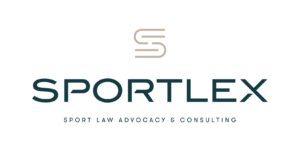Karate Canada has adopted the Canadian Safe Sport Program (CSSP), which is in effect as of April 1, 2025.
Through the CSSP Rules, the Canadian Centre for Ethics in Sport (CCES) independently administers the Universal Code of Conduct to Prevent and Address Maltreatment in Sport (UCCMS) for federally funded, national-level sport organizations by receiving and responding to reports of prohibited behaviour, and by developing and carrying out education, prevention, and policy activities.
The CSSP Rules clearly and publicly set out how that will be done, including defined timelines at each stage of the reporting process. The CSSP also offers support services to connect participants with help along the way.
For more information about the CSSP and the UCCMS, click here.
Safe Sport is a collective responsibility. By reporting concerns of maltreatment in sport, you are contributing to building a safer sport environment.
Karate Canada’s Safe Sport Policies, Code of Conduct, and Universal Code of Conduct reflect and support the CSSP and can be found here.
How to report
As of April 1, the CCES will accept reports through an online report form and by phone – both methods allow you to remain anonymous if you wish. If you choose to share your name when you make a report, the CCES will not share it with your sport organization unless it is necessary to keep you or someone else safe, and will make every effort to get your consent beforehand.
Report online: https://cces.ca/report-safe-sport
Report by phone: 1-833-858-CSSP (2777)
Get help and information
You can contact the CSSP team with questions or for support here: https://cces.ca/contactCSSP.
Complete your e-learning
Karate Canada will notify all designated participants who are subject to the CSSP. This includes, but is not limited to, specified athletes, board members, employees, casual staff, volunteers, and contractors, support staff, and medical staff.
Everyone who is subject to the CSSP must complete the e-learning course and sign the participant consent form. Karate Canada will distribute an invitation that includes a link to sign up, instructions, and a code to access the course from the CCES online education portal. If you have questions about your education requirements, email education@cces.ca.
ITP Reporting

Karate Canada is committed to providing our athletes with safe, inclusive, and supportive training competition environments to enable each athlete to achieve their maximum potential. Everyone has a role to play in creating a healthy physical and mental environment for sport participation. Karate Canada is therefore committed to raising awareness about misconduct in sport, promoting open dialogue, and providing training and resources for clubs, coaches, officials, athletes, parents, and volunteers around aspects of sport safety.
As part of its commitment to safe sport, and in accordance with Sport Canada requirements, Karate Canada has selected Sportlex as it independent third party to receive complaints pursuant to its Discipline and Complaints Policy. Their role is to receive complaints, determine the process address to address them in accordance with the Discipline and Complaints Policy, and ensure that Karate Canada continues to implement best practices in this area.
Mr. Adam Klevinas is the designated legal lead whose office can receive and review all complaints, allegations, and concerns of possible breaches to Karate Canada’s conduct policies. Those policies can be found here.
All individuals who witness or believe they have witnessed, or have been a victim, or believe they may have been a victim of a breach of conduct related to safe sport (abuse, harassment, bullying, discrimination) may contact Sportlex by email or phone at 438-520-1644.